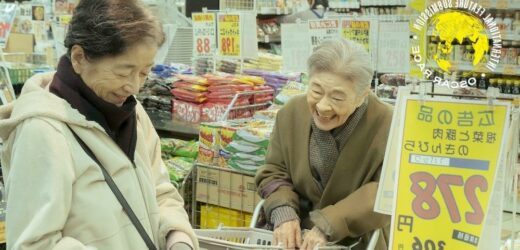Who can forget Jonathan Swift’s “A Modest Proposal,” that cheeky work of early-18th-century satire in which the author had the nerve to suggest cannibalism as a means of keeping Ireland’s unwanted kids “from being a burden on their parents or country, and for making them beneficial to the publick”? In “Plan 75,” debuting director Chie Hayakawa floats an equally extreme idea of her own without so much as a glimmer of irony, and the suggestion is upsetting enough that the public will likely still be citing it decades down the road. Set in near-future Japan, where it’s a surplus of seniors — versus an abundance of babies — that’s causing trouble, this chilling social drama takes its name from a hypothetical new legislation whereby an overtaxed government offers its elderly citizens an incentive to euthanize.
Candidates, who must be at least 75 years of age, will be offered a modest compensation to smooth their exit, or pass along to their progeny. Meanwhile, they can presumably take comfort in the fact that they are no longer serving as a burden to society. It’s a grimly pragmatic way of looking at old age and one that Hayakawa doesn’t subscribe to herself: She’s too empathetic a director to insist that her idea actually be implemented, which “Plan 75” makes clear by following this thought experiment to its natural conclusion.
Hayakawa approaches her subject with utter seriousness from the opening scene, which picks up right after a gunman has opened fire on a retirement home — an extreme sign that public sentiment has turned on the country’s resource-draining oldsters. Getting down to the nitty gritty, as it were, the helmer aims to anticipate the logistics (how the deed is done, from counseling phone calls in the lead-up to the death wards where patients are gassed), as well as any real-world repercussions her proposal would have.
Surely such a law would create new jobs, she figures. It might even spawn an entire death-in-dignity industry — sayonara vacations, or resorts where seniors can cash in their stipends for a comfortable demise. But who would take these jobs? What becomes of the dead people’s affairs? Could the businesses be trusted to handle the corpses correctly? (Many funeral homes don’t do so now, and people are always cutting corners in government work.) Perhaps most disturbing: If the public accepts Plan 75, would that make it easier to pass subsequent iterations where the minimum age is lowered?
These are all compelling questions, though Hiyakawa rushes past the most obvious one: Would Japan — or any country — really embrace a program like Plan 75? Presenting that premise as a done deal is the one thing that qualifies this movie as science fiction; the rest amounts to a kind of melancholy realism, as Hiyakawa focuses on how shabbily many elders are already being treated: abandoned by relatives, ignored by social services, left to fend for themselves.
At 78, Michi (Baishô Chieko) has reached the age where she should be able to relax and enjoy her sunset years. Instead, no one will rent an apartment to someone so old, and she has trouble finding a job to cover the basic costs of life. Tapping into a kind of collective guilt (as if Michi were real and the audience were responsible for her plight), Hiyakawa shows this kindly old woman wearing one of those fluorescent orange vests, reduced to directing traffic in the cold. Things aren’t much easier for Maria (Stefanie Arianne), the sweet Filipino nurse and young mother who assists Michi through the process. The world can be cruel and lonely, Hiyakawa reminds, while also embracing the small but significant reasons to live, like the bond that forms between these two characters.
Another customer, widowed Yukio (Takao Taka), has fewer misgivings about the program. He feels he’s lived a good life and seems ready to join his wife. But something unexpected happens at his preliminary interview: Yukio’s processing agent is none other than his nephew Hiromu (Hayato Isomura), whom he hasn’t seen in years. With good reason, Hiromu is obliged to recuse himself, since the meeting gets him worrying about Yukio’s well-being. A few days later, behind his employer’s back, Hiromu tries to talk his uncle out of his decision. Cue the sad trombone when he arrives too late to save the man’s life.
“Plan 75” might have been a risible exercise in emotional manipulation if not for the sensitive tone with which Hiyakawa approaches all of her characters. The film’s underlying agenda is hardly subtle, and yet, Hiyakawa leaves more than enough room for audiences to disagree — that is, to consider the actual merits of deciding the hour and means of one’s own exit. Though it remains taboo in many cultures, plenty of people already elect to die by assisted suicide (with Jean-Luc Godard being a prominent recent example and Alain Delon having revealed his intention). Still, it’s something altogether different for a society to encourage it.
Depressing as her film can be at times, Hiyakawa’s not nearly as heavy-handed as professional miserabilist Alejandro G. Iñárritu. Still, if “Plan 75” — which reps Japan’s submission to the Oscar international race — gets too enthusiastic a reception in the States, that may only encourage her to make more wet-blanket dramas, whereas it’s the glints of sun that redeem the film. She should cling to those as certain of her characters do to life itself.
Read More About:
Source: Read Full Article


